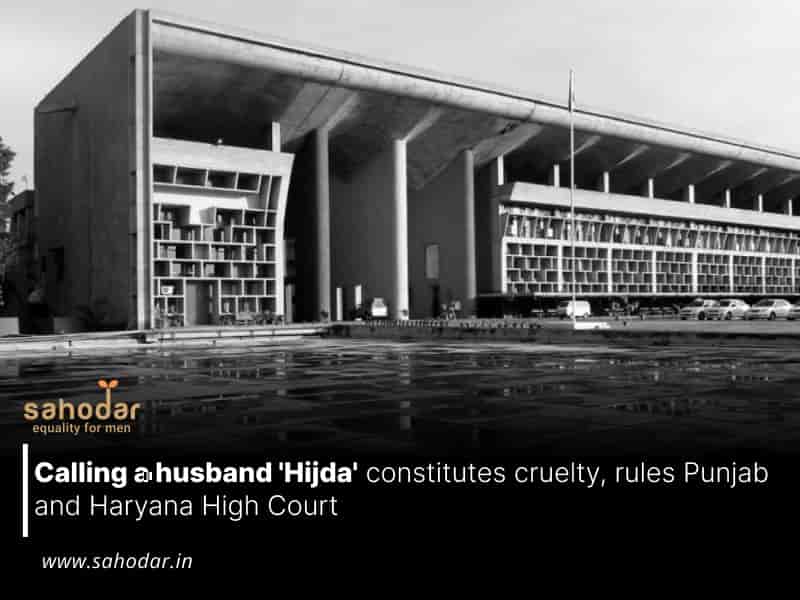The Court was hearing an appeal moved by a wife whose husband’s divorce plea was allowed by the family court on July 12.
The Punjab and Haryana High Court recently ruled that a wife referring to her husband as “Hijda” (transgender) constitutes mental cruelty.
A Division Bench consisting of Justice Sudhir Singh and Justice Jasjit Singh Bedi heard the wife’s appeal challenging the divorce decree granted to her husband by a family court on July 12.
The husband’s mother testified that the wife would frequently call her son a “Hijda.”
“If the findings recorded by the learned Family Court, are examined in the light of the … judgments of the Hon’ble Supreme Court, it comes out that the acts and conduct of the appellant-wife amounts to cruelty. Firstly, terming the respondent-husband as Hijda (transgender) and calling his mother to have given birth to a transgender, is an act of cruelty,” the Bench said.
The couple married in December 2017. In his divorce petition, the husband claimed that his wife would stay up late at night and ask his ailing mother to bring her lunch from the ground floor to the first floor.
He also alleged that she was addicted to pornography and mobile games. Additionally, the husband claimed that his wife would insist on timing their sexual activity, demanding it last at least 10-15 minutes per session and occur at least three times a night.
She would mock him for not being “physically fit to keep up with her” and had expressed a desire to marry someone else, according to the petition.
In her response, the wife denied the accusations and claimed that her husband had thrown her out of their matrimonial home.
She further alleged that her in-laws had given her intoxicating substances, causing her to lose consciousness, and during that time, they placed a talisman from a Tantrik around her neck and gave her intoxicating water to control her.
In her appeal, the wife argued that the family court had wrongly relied on the testimonies of her husband and his mother to conclude cruelty. She also contended that her allegations of being drugged were unfairly dismissed as self-serving.
The High Court observed that the wife’s allegations were unsubstantiated, as she did not call upon her parents or any close relatives to testify regarding the cruelty claims.
Additionally, the Court pointed out that the wife’s domestic violence petition against her husband had been dismissed by the trial court.
The Court further noted that there was no evidence on record indicating that this finding had been overturned by a higher court on appeal or revision.
“Considering the overall acts and conduct of the appellant-wife and further considering that the parties had been living separately for the last six years, it was rightly found by the learned family court that the marriage between the parties has ruptured beyond repair and it has become a dead wood,” the Court further said.
The Court also noted that the couple had been living apart for six years, with no chance of reconciliation.
As a result, it upheld the family court’s decision to dissolve the marriage and dismissed the wife’s appeal.

